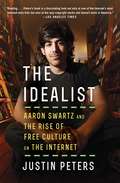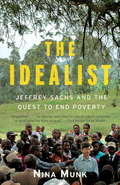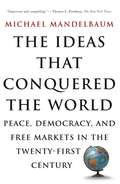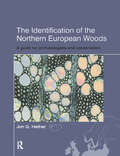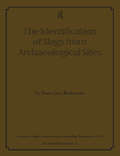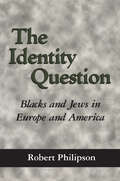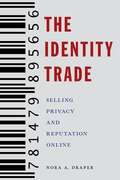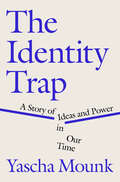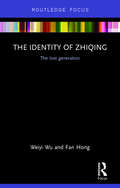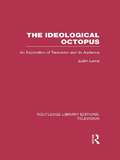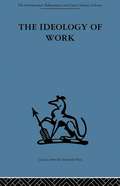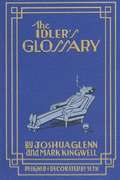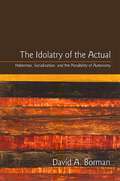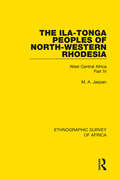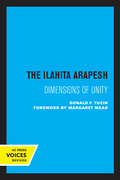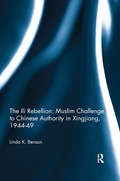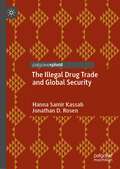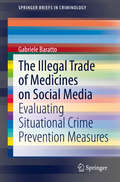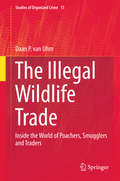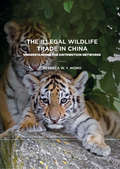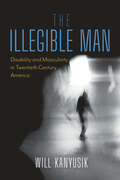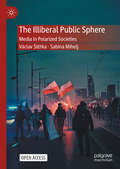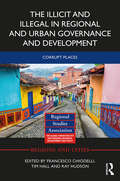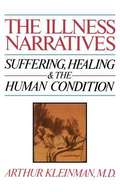- Table View
- List View
The Idealist
by Justin PetersA smart, lively history of the Internet free culture movement and its larger effects on society--and the life and shocking suicide of Aaron Swartz, a founding developer of Reddit and Creative Commons--from Slate correspondent Justin Peters.Aaron Swartz was a zealous young advocate for the free exchange of information and creative content online. He committed suicide in 2013 after being indicted by the government for illegally downloading millions of academic articles from a nonprofit online database. From the age of fifteen, when Swartz, a computer prodigy, worked with Lawrence Lessig to launch Creative Commons, to his years as a fighter for copyright reform and open information, to his work leading the protests against the Stop Online Piracy Act (SOPA), to his posthumous status as a cultural icon, Swartz's life was inextricably connected to the free culture movement. Now Justin Peters examines Swartz's life in the context of 200 years of struggle over the control of information. In vivid, accessible prose, The Idealist situates Swartz in the context of other "data moralists" past and present, from lexicographer Noah Webster to ebook pioneer Michael Hart to NSA whistleblower Edward Snowden. In the process, the book explores the history of copyright statutes and the public domain; examines archivists' ongoing quest to build the "library of the future"; and charts the rise of open access, copyleft, and other ideologies that have come to challenge protectionist IP policies. Peters also breaks down the government's case against Swartz and explains how we reached the point where federally funded academic research came to be considered private property, and downloading that material in bulk came to be considered a federal crime. The Idealist is an important investigation of the fate of the digital commons in an increasingly corporatized Internet, and an essential look at the impact of the free culture movement on our daily lives and on generations to come.
The Idealist
by Nina MunkNAMED ONE OF THE BEST BOOKS OF THE YEAR BY Bloomberg * Forbes * The SpectatorRecipient of Foreign Policy's 2013 Albie AwardA powerful portrayal of Jeffrey Sachs's ambitious quest to end global poverty "The poor you will always have with you," to cite the Gospel of Matthew 26:11. Jeffrey Sachs--celebrated economist, special advisor to the Secretary General of the United Nations, and author of the influential bestseller The End of Poverty--disagrees. In his view, poverty is a problem that can be solved. With single-minded determination he has attempted to put into practice his theories about ending extreme poverty, to prove that the world's most destitute people can be lifted onto "the ladder of development." In 2006, Sachs launched the Millennium Villages Project, a daring five-year experiment designed to test his theories in Africa. The first Millennium village was in Sauri, a remote cluster of farming communities in western Kenya. The initial results were encouraging. With his first taste of success, and backed by one hundred twenty million dollars from George Soros and other likeminded donors, Sachs rolled out a dozen model villages in ten sub-Saharan countries. Once his approach was validated it would be scaled up across the entire continent. At least that was the idea. For the past six years, Nina Munk has reported deeply on the Millennium Villages Project, accompanying Sachs on his official trips to Africa and listening in on conversations with heads-of-state, humanitarian organizations, rival economists, and development experts. She has immersed herself in the lives of people in two Millennium villages: Ruhiira, in southwest Uganda, and Dertu, in the arid borderland between Kenya and Somalia. Accepting the hospitality of camel herders and small-hold farmers, and witnessing their struggle to survive, Munk came to understand the real-life issues that challenge Sachs's formula for ending global poverty. THE IDEALIST is the profound and moving story of what happens when the abstract theories of a brilliant, driven man meet the reality of human life.
The Idealist: Aaron Swartz and the Rise of Free Culture on the Internet
by Justin PetersThis smart, “riveting” (Los Angeles Times) history of the Internet free culture movement and its larger effects on society—and the life and shocking suicide of Aaron Swartz, a founding developer of Reddit and Creative Commons—written by Slate correspondent Justin Peters “captures Swartz flawlessly” (The New York Times Book Review).Aaron Swartz was a zealous young advocate for the free exchange of information and creative content online. He committed suicide in 2013 after being indicted by the government for illegally downloading millions of academic articles from a nonprofit online database. From the age of fifteen, when Swartz, a computer prodigy, worked with Lawrence Lessig to launch Creative Commons, to his years as a fighter for copyright reform and open information, to his work leading the protests against the Stop Online Piracy Act (SOPA), to his posthumous status as a cultural icon, Swartz’s life was inextricably connected to the free culture movement. Now Justin Peters examines Swartz’s life in the context of 200 years of struggle over the control of information. In vivid, accessible prose, The Idealist situates Swartz in the context of other “data moralists” past and present, from lexicographer Noah Webster to ebook pioneer Michael Hart to NSA whistleblower Edward Snowden. In the process, the book explores the history of copyright statutes and the public domain; examines archivists’ ongoing quest to build the “library of the future”; and charts the rise of open access, the copyleft movement, and other ideologies that have come to challenge protectionist intellectual property policies. Peters also breaks down the government’s case against Swartz and explains how we reached the point where federally funded academic research came to be considered private property, and downloading that material in bulk came to be considered a federal crime. The Idealist is “an excellent survey of the intellectual property battlefield, and a sobering memorial to its most tragic victim” (The Boston Globe) and an essential look at the impact of the free culture movement on our daily lives and on generations to come.
The Ideas That Conquered The World: Peace, Democracy, And Free Markets In The Twenty-first Century
by Michael MandelbaumOne of America's leading foreign policy thinkers provides an important and compelling look at today's new power realities Thomas L. Friedman, "The New York Times"
The Identification of Northern European Woods: A Guide for Archaeologists and Conservators (UCL Institute of Archaeology Publications)
by Jon G HatherThis technical and well-illustrated guide for archaeologists and conservators aims to `provide a methodology for the identification of the woody taxa used to manufacture artefacts recovered from archaeological excavations', to provide the anatomical descriptions of the taxa and to present a list of characters of the taxa. The guide is heavily illustrated with photographs, maps, and tables to allow easy identification.
The Identification of Slags from Archaeological Sites (UCL Institute of Archaeology Publications)
by Hans-Gert BachmannThis is a guide to the field identification and laboratory analysis of metallic slags found in archaeological sites.
The Identity Question: Blacks and Jews in Europe and America
by Robert PhilipsonDespite the Enlightenment's promise of utopian belonging among all citizens, blacks and Jews were excluded from the life of their host countries. In their diasporic exile both groups were marginalized as slaves, aliens, unbelievers, and frequently not fully human. The Identity Question: Blacks and Jews in Europe and America explores the effects of diaspora upon black and Jewish consciousness, demonstrating similar histories of marginality and oppression.Casting off the fixed social categories of an earlier age, Enlightenment thinkers argued that all men in their capacity as citizens of a secular state had the right to full civic participation and equal protection under the law. In theory, such an ideology did not recognize classes or races of men automatically excluded from citizenship. In fact, negative images of blacks and Jews continued to inform European thought and policy, providing a rationale for a thriving slave trade abroad and continued oppression of Jews at home. Thus blacks and Jews were forced to define themselves in accordance with or in opposition to European ideas about who they were. Of necessity, blacks struggled against the stereotypes of black barbarism and bestiality. Jewish intellectuals protested their alleged moral unfitness to participate in society, while proclaiming primary allegiance to their host country rather than to other Jews.Central to this examination are four key autobiographies, two from the late 1700s and two from recent history. The autobiographies of Richard Wright and Alfred Kazin, taken as prime twentieth-century American expressions of racial and ethnic identity, reveal striking similarities to their Enlightenment counterparts in Europe, the black Olaude Equiano and the Jewish Salomon Maimon. Equiano, Maimon, Kazin, and Wright all accept the ultimate desirability of Western culture. All believe in the Enlightenment promise. All were ostracized by the larger political cultures of Great Britain, Germany, and America, but each made an arduous journey from the ethnic margins of language, culture, and "tribal" loyalty to the cosmopolitan center of London, Berlin, Chicago, or New York. These modern European conceptions of black and Jewish identity, as well as the modern forms of racism that came to term in the eighteenth century, entered America whole cloth. Consequently, American intellectual and social history of the twentieth century mirrors the same movements toward acceptance and ostracism that had existed in Enlightenment Europe.
The Identity Trade: Selling Privacy and Reputation Online (Critical Cultural Communication #7)
by Nora A. DraperThe successes and failures of an industry that claims to protect and promote our online identitiesWhat does privacy mean in the digital era? As technology increasingly blurs the boundary between public and private, questions about who controls our data become harder and harder to answer. Our every web view, click, and online purchase can be sold to anyone to store and use as they wish. At the same time, our online reputation has become an important part of our identity—a form of cultural currency.The Identity Trade examines the relationship between online visibility and privacy, and the politics of identity and self-presentation in the digital age. In doing so, Nora Draper looks at the revealing two-decade history of efforts by the consumer privacy industry to give individuals control over their digital image through the sale of privacy protection and reputation management as a service.Through in-depth interviews with industry experts, as well as analysis of media coverage, promotional materials, and government policies, Draper examines how companies have turned the protection and promotion of digital information into a business. Along the way, she also provides insight into how these companies have responded to and shaped the ways we think about image and reputation in the digital age.Tracking the successes and failures of companies claiming to control our digital ephemera, Draper takes us inside an industry that has commodified strategies of information control. This book is a discerning overview of the debate around who controls our data, who buys and sells it, and the consequences of treating privacy as a consumer good.
The Identity Trap: A Story of Ideas and Power in Our Time
by Yascha MounkOne of our leading public intellectuals traces the origin of a set of ideas about identity and social justice that is rapidly transforming America—and explains why it will fail to accomplish its noble goalsFor much of history, societies have violently oppressed ethnic, religious, and sexual minorities. It is no surprise that many who passionately believe in social justice came to believe that members of marginalized groups need to take pride in their identity to resist injustice.But over the past decades, a healthy appreciation for the culture and heritage of minority groups has transformed into a counterproductive obsession with group identity in all its forms. A new ideology aiming to place each person&’s matrix of identities at the center of social, cultural, and political life has quickly become highly influential. It stifles discourse, vilifies mutual influence as cultural appropriation, denies that members of different groups can truly understand one another, and insists that the way governments treat their citizens should depend on the color of their skin.This, Yascha Mounk argues, is the identity trap. Though those who battle for these ideas are full of good intentions, they will ultimately make it harder to achieve progress toward the genuine equality we desperately need. Mounk has built his acclaimed scholarly career on being one of the first to warn of the risks right-wing populists pose to American democracy. But, he shows, those on the left and center who are stuck in the identity trap are now inadvertent allies to the MAGA movement.In The Identity Trap, Mounk provides the most ambitious and comprehensive account to date of the origins, consequences, and limitations of so-called &“wokeness.&” He is the first to show how postmodernism, postcolonialism, and critical race theory forged the &“identity synthesis&” that conquered many college campuses by 2010. He lays out how a relatively marginal set of ideas came to gain tremendous influence in business, media, and government by 2020. He makes a nuanced philosophical case for why the application of these ideas to areas from education to public policy is proving to be so deeply counterproductive—and why universal, humanist values can best serve the vital goal of true equality. In explaining the huge political and cultural transformations of the past decade, The Identity Trap provides truth and clarity where they are needed most.
The Identity of Zhiqing: The Lost Generation (Routledge Contemporary China Series)
by Fan Hong Weiyi WuOutside China, little is known about the process and implications of the Up to the Mountains and Down to the Countryside (UMDC) Movement, a Chinese state policy from 1967 to 1979 in which more than 16 million secondary school-leavers in different cities were relocated to rural areas. The Movement shaped the lives of these young people and assigned them a shared group identity: Zhiqing, or the Educated Youth. This book provides new research on Zhiqing, who were born and brought up after the establishment of the People’s Republic of China and regarded as a lost generation during the Cultural Revolution. Presenting a remembrance of their tortuous life trajectories, the book investigates their distinctive identity and self-identification. Unlike earlier historical approaches, it does this from a social psychological perspective. It is also unique in its use of first-hand materials, as individuals’ memories and reflections collected by in-depth interviews are compiled and presented as Zhiqing’s self-portrait. This innovative research offers an informative and profound induction of the topic and also contributes to the development of contemporary Chinese studies by laying the foundation for a specialized Zhiqing study. Combining rich empirical research with a strong theoretical perspective, this book will be invaluable to students and scholars of Chinese history, sociology, anthropology and politics.
The Ideological Octopus: An Exploration of Television and its Audience (Routledge Library Editions: Television)
by Justin LewisOriginally published in 1991, this introduction to studying the television audience discusses developments in semiology and cultural studies and their contribution to our understanding of the power of television. How, in the most precise and intricate sense, does television influence the way we think about the world? What ideological role does it play in contemporary culture? Does TV control us or do we control it? This insightful book assesses the progress in responding to these questions and offers some answers of its own. In the 1980s, with the emergence of semiology and cultural studies in particular, there were a number of significant theoretical developments in our understanding of television's power of which this book provides an overview while also incorporating traditional approaches. It suggests that television influences us ambiguously and unpredictably, depending upon who we are and how we think. Ambiguity does not blunt television's power, it simply diversifies it into a very modern kind of omnipotence. Employing two major qualitative audience studies, this impressive study illustrates its argument with findings that are both unexpected and disturbing.
The Ideology of Work (International Behavioural And Social Sciences Ser. #Vol. 71)
by P D AnthonyTavistock Press was established as a co-operative venture between the Tavistock Institute and Routledge & Kegan Paul (RKP) in the 1950s to produce a series of major contributions across the social sciences. This volume is part of a 2001 reissue of a selection of those important works which have since gone out of print, or are difficult to locate. Published by Routledge, 112 volumes in total are being brought together under the name The International Behavioural and Social Sciences Library: Classics from the Tavistock Press. Reproduced here in facsimile, this volume was originally published in 1972 and is available individually. The collection is also available in a number of themed mini-sets of between 5 and 13 volumes, or as a complete collection.
The Idler's Glossary
by Seth Joshua Glenn Mark KingwellFor as long as mankind has had to work for a living, people who work have disparaged those who prefer not to. This glossary playfully explores the etymology and history of hundreds of idler-specific terms and phrases, while offering a foundation for a new mode of thinking about work and labor.
The Idolatry of the Actual: Habermas, Socialization, and the Possibility of Autonomy (SUNY series in the Philosophy of the Social Sciences)
by David A. BormanThe first close study of Jürgen Habermas's theory of socialization, a central but infrequently discussed component of his defense of deliberative democracy, The Idolatry of the Actual charts its increasingly uneasy relationship with the later development of Habermas's social theory. In particular, David A. Borman argues that Habermas's account of the development of the subject and of the conditions under which autonomy can be realized is fundamentally at odds with the increasingly liberal tenor of his social theory. This leads Borman to return to the set of concerns that guided Habermas's social theory in the early 1970s, paying particular attention to questions of crisis and the means by which public reactions are shaped—questions perhaps more relevant today than they have been at any time since the 1930s. Using Habermas's early work as a framework, Borman constructs an original critical-theoretical argument that draws on research in the sociology of schooling to understand how attitudes toward work, reward, achievement, class, gender, and race are shaped in economically functional ways, and draws on philosophical and empirical scholarship to demonstrate the challenges of multicultural integration and the impact of both on the potential for progressive social transformation.
The Ila-Tonga Peoples of North-Western Rhodesia: West Central Africa Part IV
by M. A. JaspanRoutledge is proud to be re-issuing this landmark series in association with the International African Institute. The series, published between 1950 and 1977, brings together a wealth of previously un-co-ordinated material on the ethnic groupings and social conditions of African peoples. Concise, critical and (for its time) accurate, the Ethnographic Survey contains sections as follows: Physical Environment Linguistic Data Demography History & Traditions of Origin Nomenclature Grouping Cultural Features: Religion, Witchcraft, Birth, Initiation, Burial Social & Political Organization: Kinship, Marriage, Inheritance, Slavery, Land Tenure, Warfare & Justice Economy & Trade Domestic Architecture Each of the 50 volumes will be available to buy individually, and these are organized into regional sub-groups: East Central Africa, North-Eastern Africa, Southern Africa, West Central Africa, Western Africa, and Central Africa Belgian Congo. The volumes are supplemented with maps, available to view on routledge.com or available as a pdf from the publishers.
The Ilahita Arapesh: Dimensions of Unity
by Donald F. TuzinThis title is part of UC Press's Voices Revived program, which commemorates University of California Press’s mission to seek out and cultivate the brightest minds and give them voice, reach, and impact. Drawing on a backlist dating to 1893, Voices Revived makes high-quality, peer-reviewed scholarship accessible once again using print-on-demand technology. This title was originally published in 1976.
The Ili Rebellion: Muslim Challenge to Chinese Authority in Xingjiang, 1944-49
by Linda K. BensonIn 1944 Moslem forces in China's westernmost province of Xinjiang rose against the Chinese authorities and succeeded in establishing a small independent Islamic state - the East Turkestan Republic. Based on newly available archival material, this book describes the Moslem challenge to Chinese rule and documents the Nationalist government's response to newly awakened Turkic-Moslem nationalism on China's most remote and politically sensitive north-western frontier. With this book, Linda Benson aims to break new ground in the study of Sino-Soviet relations and especially of the policies of Chinese governments toward their national minorities.
The Illegal Drug Trade and Global Security
by Jonathan D. Rosen Hanna Samir KassabThis book explores global drug trafficking networks’ impact on international security and provides an in-depth analysis of drug trafficking networks globally by integrating international relations and security studies theories. The book acts as a primer, simplifying the complicated world of narcotics and insecurity, while also providing policy recommendations for policy-makers hoping to reduce the power of organized criminal and terrorist networks globally. It will be of interest to undergraduate and postgraduates taking courses in International Relations, Global Politics, Defense Studies, Security Studies, and International Political Economy, as well as Criminal Justice, Sociology, and other social science disciplines that cover issues related to drug trafficking, organized crime, and violence.
The Illegal Trade of Medicines on Social Media: Evaluating Situational Crime Prevention Measures (SpringerBriefs in Criminology)
by Gabriele BarattoThis book evaluates the impact of situational crime prevention measures implemented by social media platforms to identifying, blocking, and removing content linked to illegal traded medicines. It discusses the extent of social media usage in trafficking of medicines; the ease of access; visibility of the content; language of posts; products most traded; and types of posts. Research results support the hypothesis of the limited impact of these measures, due not to a lack of effectiveness but to asymmetrical implementation. This volume will be of interest to researchers, law enforcement, policy makers, social media groups, public health practitioners.
The Illegal Wildlife Trade
by Daan P. UhmIn this book the author examines the illegal wildlife trade from multiple perspectives: the historical context, the impact on the environment, the scope of the problem internationally, the sociocultural demand for illegal products, the legal efforts to combat it, and several case studies from inside the trade. The illegal wildlife trade has become a global criminal enterprise, following in the footsteps of drugs and weapons. Beyond the environmental impact, financial profits from the illegal wildlife trade often fund organized crime groups and violent gangs that threaten public safety and security in myriad ways. This innovative volume covers several key questions surrounding the wildlife trade: why is there a demand for illegal wildlife products, which actors are involved in the trade, how is the business organized, and what are the harmful consequences. The author performed ethnographic fieldwork in three key markets: Russia, Morocco, and China, and has constructed a detailed picture of how the wildlife trade operates in these areas. Conversations with informants directly involved in the illegal business ensure unique insights into this lively black market. In the course of his journey the author follows the route of the illegal wildlife trade from poor poaching areas to rich business districts where corrupt officials, legally registered companies, wildlife farms and sophisticated criminal organizations all have a share. A fascinating look inside the world of poachers, smugglers and traders.
The Illegal Wildlife Trade in China: Understanding The Distribution Networks (Palgrave Studies in Green Criminology)
by Rebecca W. WongThis book offers a theoretically-based study on crimes against protected wildlife in mainland China with first-hand empirical data collected over five years. It provides an overall examination of crimes against protected and endangered wildlife and an extensive account of the situation in China, where a significant portion of the illegal wildlife trade is currently happening. This emerging field has become an important topic for enforcement and governments alike yet remains an under-researched area. The collected data covers illegal tiger-parts trade, the illegal ivory trade, and the consumption of protected wildlife. The book will serve as a useful reference for scholars, law-enforcement agencies, lawyers, and conservation and wildlife-protection NGO groups to facilitate their understanding of the growing illegal trade in protected and endangered wildlife. The Illegal Wildlife Trade in China has three general aims: first, to contribute to the general development of green criminology and specifically to the literature of the illegal transactions of protected wildlife at the distribution stage. Second, it aims to understand how illegal transactions are carried out to create insights for policy makers and law enforcement professionals. Finally, Wong seeks to apply theoretical frameworks (such as that of trust, networks, and situational crime prevention) to the understanding of the distribution of illegal wildlife products in order to make contributions to ongoing sociological and criminological discussions.
The Illegible Man: Disability and Masculinity in Twentieth-Century America
by Will KanyusikHow does the sudden onset of disability impact the sense of self in a person whose identity was, at least in part, predicated on the possession of what is culturally understood to be an "able" body? How does this experience make visible the structures enabling society's shared notions of heteronormative masculinity?In the United States, the Second World War functioned as a key moment in the emergence of modern understandings of disability, demonstrating that an increased concern with disability in the postwar period would ultimately lead to greater incoherence in the definitions and cultural meanings of disability in America. The Illegible Man examines depictions of disability in American film and literature in twentieth-century postwar contexts, beginning with the first World War and continuing through America's war in Vietnam. Will Kanyusik searches for the origin of discourse surrounding disability and masculinity after the Second World War, examining both literature and film—both fiction and documentary—their depictions of disability and masculinity, and how many of these texts were created by the relationship between the culture industry and the Office of War Information in the 1940s.Supported by original archival research, The Illegible Man presents a new understanding of disability, masculinity, and war in American culture.
The Illiberal Public Sphere: Media in Polarized Societies
by Sabina Mihelj Václav ŠtětkaThis open access book provides the first systematic analysis of the role of the media in the rise of illiberalism, based on an original theoretical framework and extensive empirical research in Eastern Europe – a region that serves as a key battleground in the global advance of illiberalism. Liberal democracies across the world are facing a range of challenges, from the growing influence of illiberal leaders and parties to deepening polarization and declining trust in political elites and mainstream media. Although these developments attracted significant scholarly attention, the factors that contribute to the spreading of illiberalism remain poorly understood, and the communication perspective on illiberalism is particularly underdeveloped.Štětka and Mihelj address this gap by introducing the concept of the illiberal public sphere, identifying the key stages in its development, and explaining what makes illiberalism distinct from related phenomena such as populism. Their analysis reveals how and why the changing communication environment facilitates selective exposure to ideologically and politically homogeneous sources, fosters changes in normative assumptions that guide media trust, increases vulnerability to disinformation, and goes hand in hand with growing hostility to immigration and LGBTQ+ rights. The findings challenge widespread assumptions about digital platforms as key channels of illiberalism and suggest that their role shifts as the illiberal sphere progresses.The arguments presented in this book have important implications for future research on challenges to liberal democracy, as well as for journalists, media regulators and other professionals committed to rebuilding media trust and containing the forces of polarization.
The Illicit and Illegal in Regional and Urban Governance and Development: Corrupt Places (Regions and Cities)
by Tim Hall Ray Hudson Francesco ChiodelliDiscussions of the illicit and the illegal have tended to be somewhat restricted in their disciplinary range, to date, and have been largely confined to the literatures of anthropology, criminology, policing and, to an extent, political science. However, these debates have impinged little on cognate literatures, not least those of urban and regional studies which remain almost entirely undisturbed by such issues. This volume aims to open up debates across a range of cognate disciplines. The Illicit and Illegal in Regional and Urban Governance and Development is a multidisciplinary volume that aims to open up these debates, extending them empirically and questioning the dominant discussions of governance and development that have been rooted largely or entirely in the realm of licit and legal actors. The book investigates these issues with reference to a variety of different geographical contexts, including, but not limited to, places traditionally considered to be associated with illegal activities and extensive illicit markets, such as some regions in the so-called Global South. The chapters consider the ways in which these questions deeply affect the daily lives of several cities and regions in some advanced countries. Their comparative perspectives will demonstrate that the illicit and the illegal are an underappreciated structural aspect of current urban and regional governance and development across the globe. The book is an edited collection of research-informed essays, which will primarily be of interest to those taking advanced undergraduate and taught postgraduate courses in human geography, urban and regional planning and a range of social science disciplines that have an interest in urban and regional issues and issues related to crime and corruption.
The Illness Narratives: Suffering, Healing, And The Human Condition
by Arthur KleinmanA Harvard psychiatrist and anthropologist argues that interpreting the illness experience is an art tragically neglected by modern medical training, and presents a compelling case for bridging the gap between patient and doctor. Based on twenty years of clinical experience studying and treating chronic illness, a Harvard psychiatrist and anthropologist argues that diagnosing illness is an art tragically neglected by modern medical training, and presents a compelling case for bridging the gap between patient and doctor.
